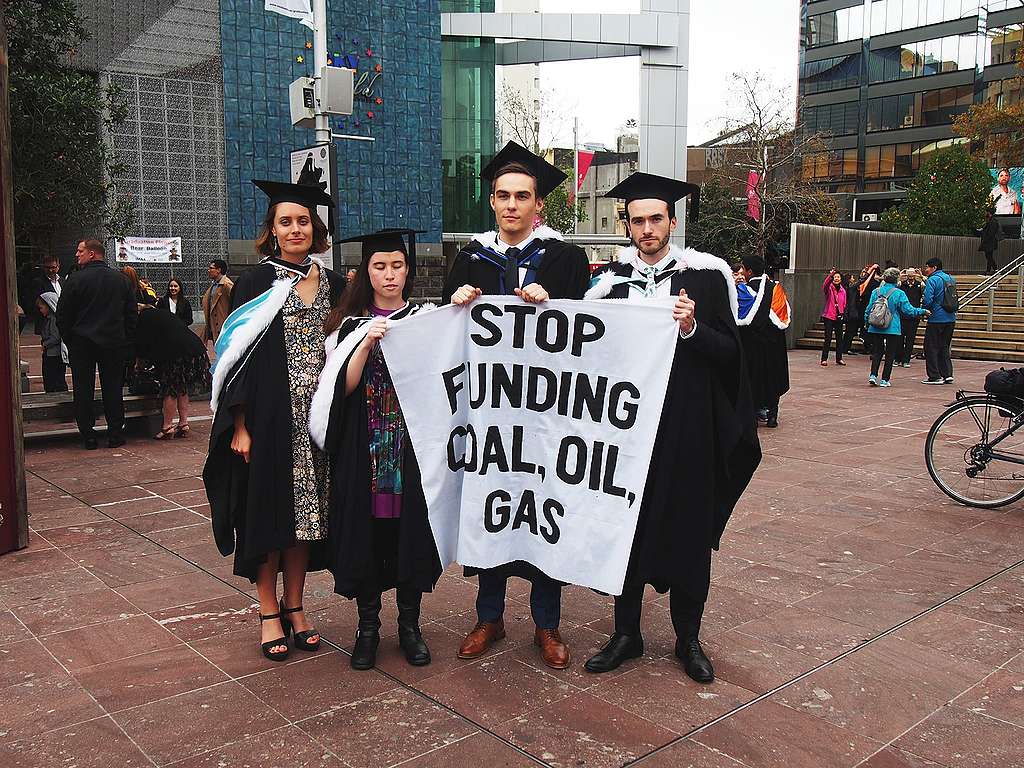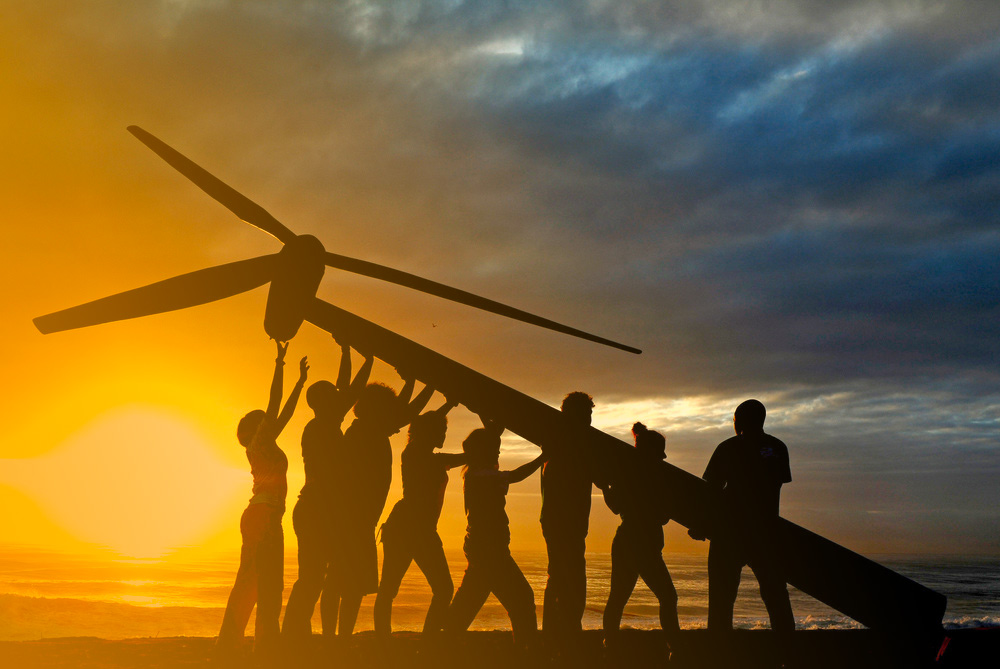As part of our campaign to Build Back Better from Covid-19, we’re commissioning a series of blogs and opinion pieces from different perspectives to explore the potential for a fairer, more equitable post-Covid future. The fight for climate and ecological justice is also the fight for social justice.

I’m a blind twenty-something from Aotearoa, and when the Covid pandemic hit in March, I got lucky.
I was studying in Sweden at the time and got sick with (very probable) Covid that month. (That wasn’t the lucky part).
In April, I was able to move in with my parents, which meant moving to Norway. I would develop Long Covid and realise I was going to be staying put with limited capacity for some time. But Long Covid’s grab-bag of symptoms aside, my stress levels this past half a year have been minimised, thanks largely to privileges and factors I have no control over.
I’m living in a warm, well-insulated house, with financial and food security. I have access to the internet and the tech that works best for me, including an expensive Braille computer. I can work remotely and flexibly, based not on a 9-5 schedule but rather on Crip time, working when my body and energy levels see fit. I enjoy connection, online learning, friendship and support from many quarters.
Back home in Aotearoa, disabled people’s initial experiences when the pandemic hit were mixed. Many were at heightened risk if they caught Covid. Disabled and Deaf people sprang into action to contact those who might be isolated in their communities and check in on mental health. Disability organisations worked hard to bring members the info they needed in accessible formats and the Government set up two groups to coordinate their disability response. It was a disabled Kiwi who came up with the simple, empowering and soon ubiquitous ‘bubble’ concept.
Meanwhile, disabled students who’d been asking for remote access to their uni courses for years bemoaned the fact that it took a pandemic to make it happen and there was no guarantee of its longevity. PPE consistently failed to arrive for many support workers and there was confusion about how to fund support. Supermarket deliveries were initially challenging to secure for those reliant upon them, and the sudden lack of routine and shift to online school learning left many parents and disabled children in the lurch.
It wasn’t perfect, but during its initial Covid response, the Government demonstrated uncanny ability to work with agility, determination and precision. Through actions like signing off a $12.1 billion Covid relief pool as early as March 17, it demonstrated that large-scale measures are a matter of political will. But if the newly-elected Labour-led government is going to harness its historic mandate and take advantage of Covid’s unique momentum to build back better, it has to dig deeper than this moment, to ask how we got here.
Well beyond the most acute stage, the default effect of the covid-19 crisis, like climate change, is to exacerbate existing inequities. Whether related to income, health, employment, transport, digital access or other combinations, the gaps widen, especially for already under-served communities including Māori, Pacific, immigrants, low-income, trans and disabled people. When the foundations of a house aren’t well-built, plastering over cracks is only a stop-gap response. Building back better from Covid is about digging down methodically to the roots of these multiplying inequities and putting in place enduring foundations that seek to eliminate them. From a disability perspective, here are five starting points for this mahi:
Give everyone enough to live on
In March, the Government introduced a much-needed Covid temporary wage subsidy. But the fact that it didn’t take the opportunity to raise core benefit levels nearly enough to bring people receiving income support out of poverty is the definition of short-term thinking and status quo bias. Disabled people are almost three times as likely as non-disabled people to be unemployed. Even when we have work, we’re up against a disability pay gap, earning on average $98 less per week. That gap will be larger for Māori and Pacific disabled people. The Government’s own Welfare Expert Advisory Group laid out the case for a system overhaul involving majorly increasing core benefits over a year ago, and meanwhile New Zealand’s enormous and embarrassing wealth gap persists.
Most recently, over 60 NGOs, including representing disabled people, have called on the Government to provide livable incomes to all by christmas. Despite backing from the Greens, Prime Minister Ardern’s response indicates further incrementalism, which is hurtful. It will be to the Labour Party’s shame if taking bold and decisive action to end poverty isn’t prioritised this term
Build way more accessible housing
There’s nothing like having to shower at work for seven months to remind you how dire Aotearoa’s accessible housing shortage is. The crisis is most acute for people with physical disabilities, who, when placed in a suboptimal property, may be forced to wait years for modifications to be made. Mouldy and poorly-insulated homes also drive up health inequities, where Māori and Pacific people are disproportionately impacted. The Labour Party have promised at least a quarter of housing will be built to universal design standards. That would be a good start, but accessibility shouldn’t be relegated to a “sometimes” box, and this is acknowledged by the Green Party. Those having spent months on Housing New Zealand’s waiting list while supply fails to meet demand know that pain too well.
Take Disabled un-/under-employment seriously
When a woman with cerebral palsy reported being discriminated against to her face in job searches earlier this year, disabled people reacted with empathy, well-worn frustration and no surprise. A range of barriers, from the accessibility of application processes to punishing benefit abatement rates to unconscious bias from employers, mean the disability un- and under-employment rates are about twice those for non-disabled people. Take a moment to absorb the fact almost half of disabled young people (15-24 years) aren’t in education, employment or training, compared to one in five non-disabled people.
The stats haven’t budged, but we’ve got to keep them in the news anyway. Government disability strategies and action plans since at least 2014 have been promising tangible steps towards equity of employment opportunities, and results remain elusive. Most recently, an employment-focused all-of-Government plan has come out, aiming to ensure disabled people aren’t left behind during the Covid-19 recovery, while a more progressive blueprint from the country’s largest disability employment agency challenges it to take bolder measures. Under Covid-19, Government and employers alike demonstrated remarkable agility and flexibility, and those traits must stay front of mind to scale up employment equity in practice, not just on paper.
Value disabled expertise, always
When a report supposedly reviewing the Health and Disability system appeared in June, the wrath of disabled people was palpable. There was wide-spread agreement that it read like a health review with disability tacked on. Despite the title, there were exactly zero disabled people on the panel overseeing it. The health and disability pairing which has under-pinned disability services for decades was always a doomed marriage. It leans into the assumption that disability support is inherently medical, even though funding to live quality lives with autonomy is a far more social proposition. Over-reliance on medical conceptions of disability are also tied up in the long-standing inequity between those disabled by accident and those disabled through illness.
Another major Government report to emerge this year was the first national Climate Change Risk Assessment. It’s incredibly important that we’re forecasting what the upending nature of climate chaos could look like in Aotearoa from an environmental, social and economic standpoint, because the more adaptation we can do and the sooner we can do it, the better. But in the Assessment’s 133 pages, there is only one lonely line mentioning disability. Disability organisations don’t figure at all in the extensive consultation undertaken for the report, and yet internationally, disabled people have warned repeatedly about the dangers of being considered an afterthought when lives and livelihoods are on the line.
This term, our Parliament has become more representative of Aotearoa’s rainbow and ethnic diversity, but not on the disability front. Our elected MPs have a duty to be proactive allies and do their best to ensure disabled people, especially those who are multiply marginalised, are in the room with full access, regardless of which matter happens to be on the table.
Zoom out and dig deep
“Hunting, farming and the global move of people to cities has led to massive declines in biodiversity and increased the risk of dangerous viruses like Covid-19 spilling over from animals to humans, a major study has concluded.” That’s the opening to a Guardian story digging down to the roots of this virus pandemic business. It’s the kind of jarring read that doesn’t let you forget how interconnected and interdependent humans and nature are. And if the pandemic has demonstrated anything, it’s how dependent we are on each other.
Swept up in the news cycle, it’s easy to overlook this panoramic view. In the case of the climate crisis, the chaos snatches the spotlight in stops and starts, but it is always there: the harm of the extractive, corporate-profit-driven relationship with nature falling disproportionately on those who have contributed the least to climate change.
As far as equity in everyday life is concerned, disposable income has a bearing on where you can afford or access to live, as well as the transport options you have, your diet, the local communities you belong to, your internet access, the educational resources available to you and so on. Multiply marginalised people have never had the luxury of forgetting about these intersections.
The Labour Party must take the colliding Covid, climate and social inequality crises as an opportunity to dig down to the roots of oppressive systems, and be led by marginalised communities in replacing them with enduring and equitable foundations. Anything less, and this is not a Government for every New Zealander.

Áine Kelly-Costello is a disabled campaigner and writer from Aotearoa currently based in Norway. She is committed to disabled-led campaigning and story-sharing, and has also organised for climate justice. Check out her blog A Frame on Life for more of her work and contact details.
 Take Action
Take Action
